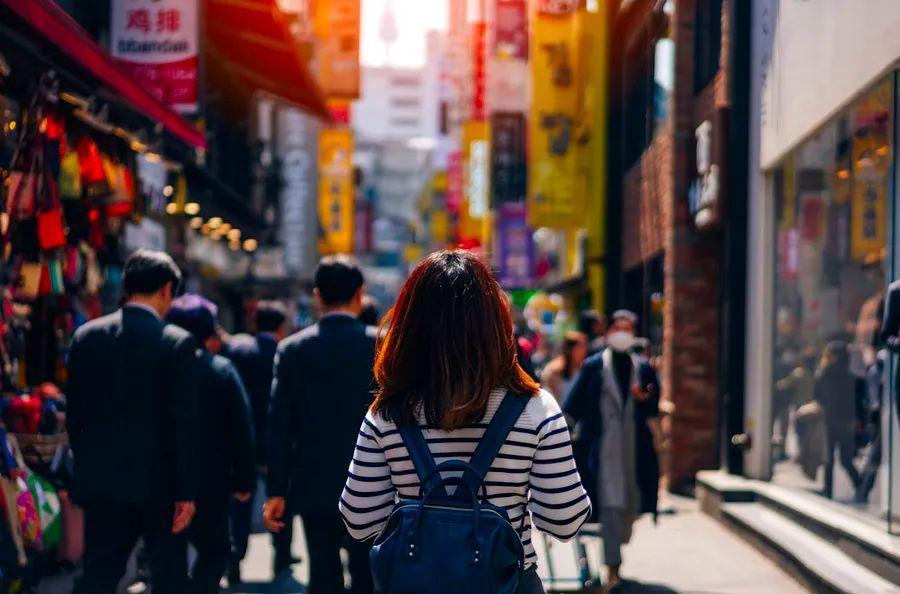Essential tips for your trip to Seoul

When I relocated to Seoul, I had a straightforward plan: teach English for a year and then venture out to discover the world. However, I didn’t foresee how enchanting Seoul would be, and what was meant to be a year turned into two, three, and ultimately six years.
From the instant I disembarked the crowded bus from the airport and stepped onto the lively streets, I was captivated by its vibrant neighborhoods, unique markets, and varied nightlife.
Here are my top insider tips to ensure your first visit to Seoul is as memorable as mine.
1. Get a local SIM card
While numerous establishments throughout Seoul provide free wi-fi, acquiring a local SIM card guarantees you're connected while exploring. You can order a prepaid SIM from providers like KT and SKT, available for pickup upon arrival at Incheon Airport, or buy one at nearly any convenience store across the city.
With a local SIM, making calls and using apps for restaurant bookings or late-night taxis won’t lead to exorbitant charges when you return home. It’s also an excellent way to navigate the scenic hikes outside the city. SIM cards are affordable, with prices starting around ₩5500 for a single day, depending on your stay's length.
2. Select your accommodations based on the Seoul attractions that excite you the most
Each neighborhood in Seoul boasts its own unique character—choose the district that aligns with your interests for your stay. If you crave vibrant nightlife and diverse dining options, Itaewon is your ideal spot. Shopaholics and food lovers should opt for Myeongdong or Dongdaemun, where bustling food stalls and towering retail hubs abound.
Art lovers and history enthusiasts will thrive in local galleries and at Gyeongbokgung Palace in Insadong. If you're drawn to all-night pop-up art exhibits, street performers, and noraebangs (karaoke rooms), Hongdae will certainly satisfy your cravings.
Immerse yourself in Korean culture by booking a stay at a hanok (traditional Korean house). These residences showcase Korea's heritage with their classic architecture, featuring ondols (heated floors) and charming courtyard gardens that provide a peaceful escape from the city's hustle and bustle.
 Seoul's subway system is clean, efficient, and an ideal way to swiftly navigate the city © 2p2play / Shutterstock
Seoul's subway system is clean, efficient, and an ideal way to swiftly navigate the city © 2p2play / Shutterstock3. Download this app to navigate Seoul's subway system
Seoul's subway is safe and well-maintained, making it the most effective way to explore the vast city. Entrances and exits are clearly marked with numbers and station names in English. Utilize a subway navigation app like Subway Korea (available on both iOS and Android) to find which exit will bring you closest to your destination. All stations and trains offer wi-fi.
While subways can get packed during peak hours, traveling at other times is usually a breeze. Even when the trains are full, your personal space tends to be respected.
4. Use Kakao Taxi for late-night rides
The subway operates from 6am to midnight, leaving taxis as the only option for late-night travel. Finding a cab can be tricky in nightlife hotspots like Gangnam, Itaewon, and Hongdae, so download the Kakao T app to easily locate available rides. You can specify your destination and confirm the fare before hopping in. Paying in cash is acceptable, and the fare won't change once confirmed.
5. Purchase a Tmoney card for public transport
Tmoney cards are rechargeable travel cards that work across all of Seoul's public transport systems and cost just ₩2500. You can find them at any convenience store throughout the city, and once loaded with funds, you'll skip the lines for individual tickets! Each scan of the card shows your remaining balance, and when it gets low, simply return to a convenience store or subway kiosk to top it up. All kiosks offer an English-language option.
 Standard apps may not serve you well in Korea; opt for local alternatives instead © 501room / Getty Images
Standard apps may not serve you well in Korea; opt for local alternatives instead © 501room / Getty Images6. Navigation and translation apps are must-haves in Korea
Many widely used apps from other countries, like Google Maps, struggle in Korea. While it's decent for finding restaurants in English, locating them can be tricky. Instead, download KakaoMap for seamless navigation, which also showcases nearby attractions and restaurants with user reviews.
If Korean isn't your forte, don't worry—get Papago, an app that translates text, speech, and images. You can snap a photo of anything with Korean text, from signs to snack packages, and the app will translate it for you.
7. Get acquainted with Korean customs and essential phrases
Korean culture, deeply influenced by Confucian ideals, values social harmony. It's crucial to be polite in your conversations, and knowing a few Korean words can significantly enhance your interactions. Practice simple greetings like 'gamsahabnida' (thank you), 'annyeonghaseyo' (hello), and 'juseyo' (please).
On every subway and bus, there's a designated seat for pregnant women, which is strictly reserved for them. In Korean society, age commands respect, so showing courtesy to elders is vital. If an older person offers you food or drink, graciously accept it and express your thanks, perhaps with a slight bow.
8. Always use both hands when giving or receiving gifts, drinks, and money
When you meet someone for the first time, greet them by clasping their hand with both of yours. This practice extends to pouring drinks—never pour your own. Instead, take turns pouring for each other, and always use both hands when pouring or receiving.
Additionally, remember to use both hands when giving or receiving a gift or when exchanging money at a store.
 In Korea, metal chopsticks are standard, but don’t worry about your proficiency with them—no one will judge you © Boontoom Sae-Kor / Shutterstock
In Korea, metal chopsticks are standard, but don’t worry about your proficiency with them—no one will judge you © Boontoom Sae-Kor / Shutterstock9. Be aware of your dining etiquette
Eating out in South Korea is a communal experience. You'll typically find soju (Korean rice liquor), beer, and banchan (side dishes) on the table for sharing before the main course arrives. Many restaurants have a button labeled yeo-gi-yo ('over here') on the table to call the server. If there's no button, feel free to wave to the staff for assistance. While it might feel impolite, this practice is perfectly acceptable in Korea, so don’t hesitate to do it.
In Korea, metal chopsticks are common and can be a bit slippery compared to wooden ones. While no one critiques your chopstick skills, it's essential to wait for the eldest person at the table to pick up their chopsticks first. Avoid sticking them upright in a bowl of rice, as this resembles a funeral custom. Instead, Koreans typically use a spoon for rice.
Tipping is not customary in restaurants and may even be seen as rude.
10. Be cautious on the sidewalks of Seoul
While Seoul itself is safe, its traffic can be hectic. Motorbikes often zip along sidewalks with little regard for pedestrians, and cars may park on them. When walking in Seoul, stay vigilant and be ready to move aside swiftly.
11. Public restrooms are generally acceptable to use
Many cafes and restaurants require customers to place an order before providing the restroom passcode. To save time and money, look for public restrooms, which are clearly marked in English for men and women, often located in subway stations and busy areas.
Public toilets in Seoul are clean and among the few places where you'll find trash cans while out. They often feature advanced amenities like bidets, heated seats, and a button that plays rushing water sounds to help alleviate any stage fright.
 The drinking culture is a significant aspect of social life in Seoul © iStock / Getty Images
The drinking culture is a significant aspect of social life in Seoul © iStock / Getty Images12. Familiarize yourself with Korea's drinking culture
In Korea, drinking is a beloved national pastime, and Seoul boasts an array of retro dive bars and vibrant nightclubs. You'll often see young partygoers gathering outside convenience stores as early as 7 AM or business professionals dozing on benches after lively hoesiks (post-work gatherings involving food and drinks). It's customary in Korean drinking culture to ensure no glass remains empty, and refusing a shot of soju is considered impolite. Alcohol shops operate around the clock, and there are no restrictions on open containers, making it perfectly normal to stroll with a drink while heading to the next venue.
13. You'll feel secure in the city
Rooted in Confucian principles, mutual respect and trust are highly valued. While you should still take typical urban safety precautions, walking back to your accommodation alone at night is generally safe. You can leave your belongings like jackets or bags to reserve a seat at bars and restaurants without much fear of theft. If you forget your phone in a taxi, there's a good chance the driver will return it to the police station.
14. Stay informed about North Korea, but don't stress
Although North Korea may seem like a looming threat just an hour and a half away, the reality is mostly felt outside of Korea. Since the 1950s, the two Koreas have been at a standstill, and while sensational headlines can be alarming, the actual risk is relatively low. Most Koreans appear unconcerned about their northern neighbor.

1

2

3

4

5
Evaluation :
5/5